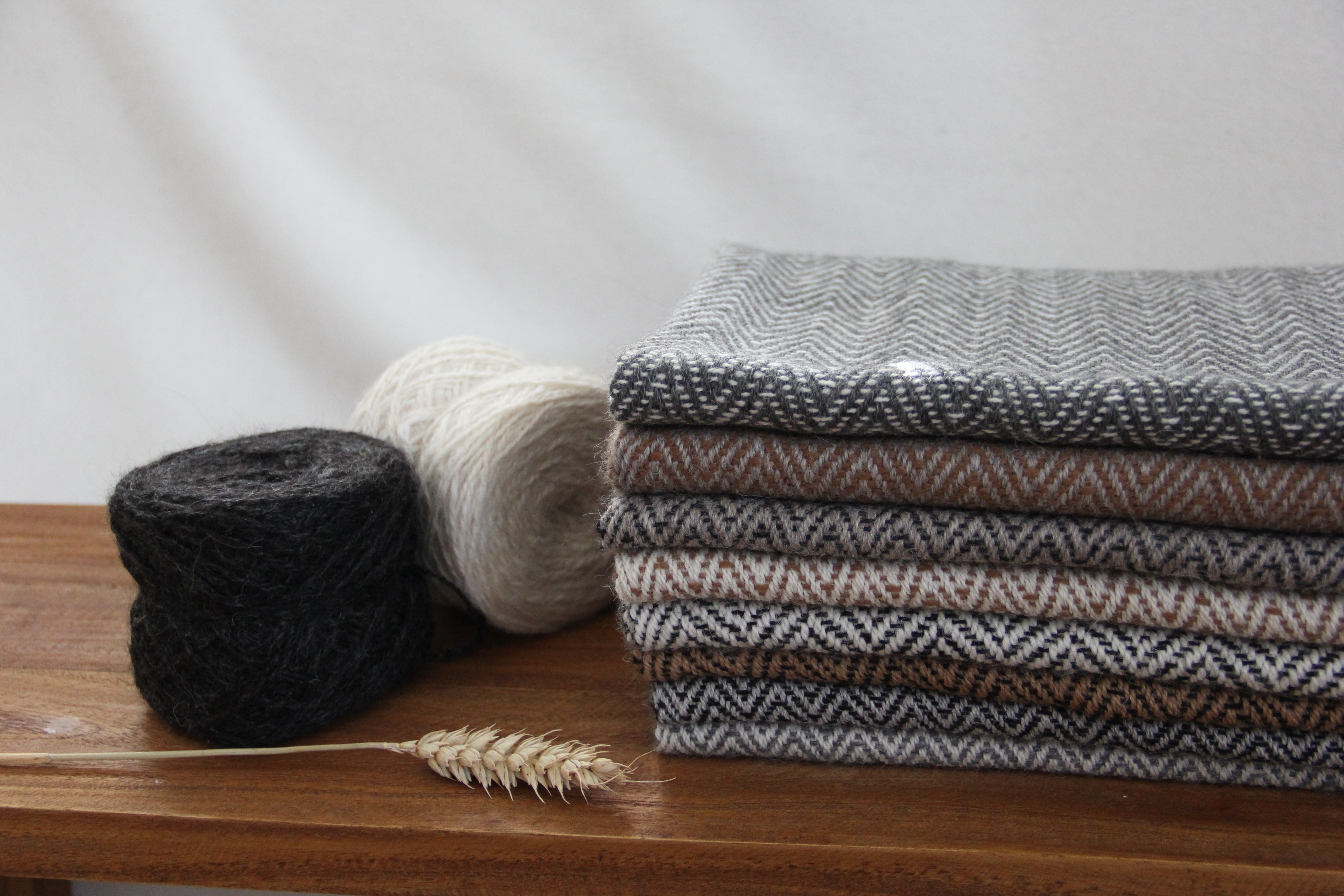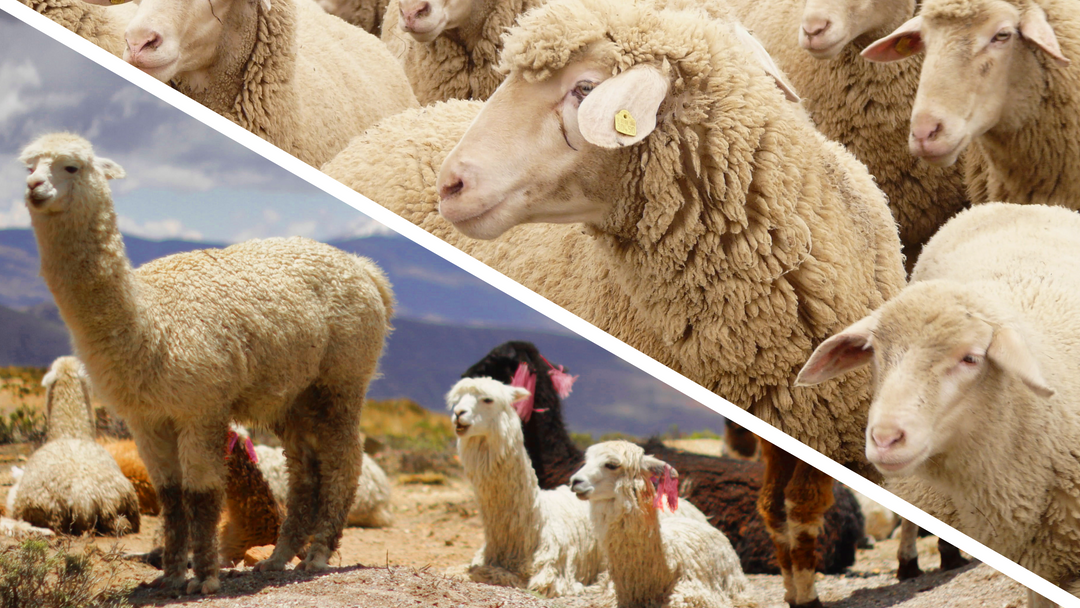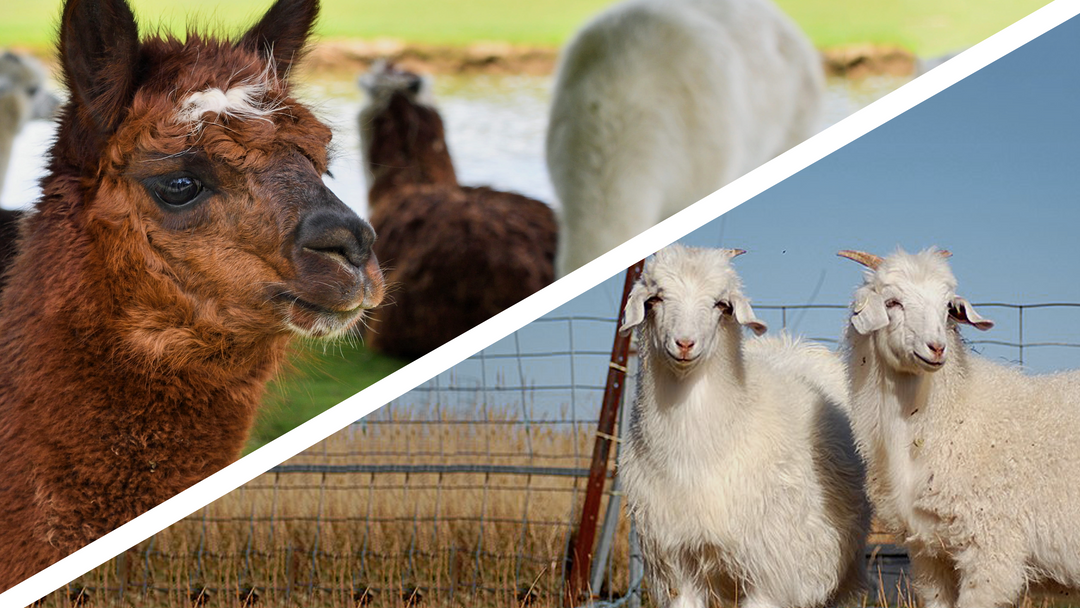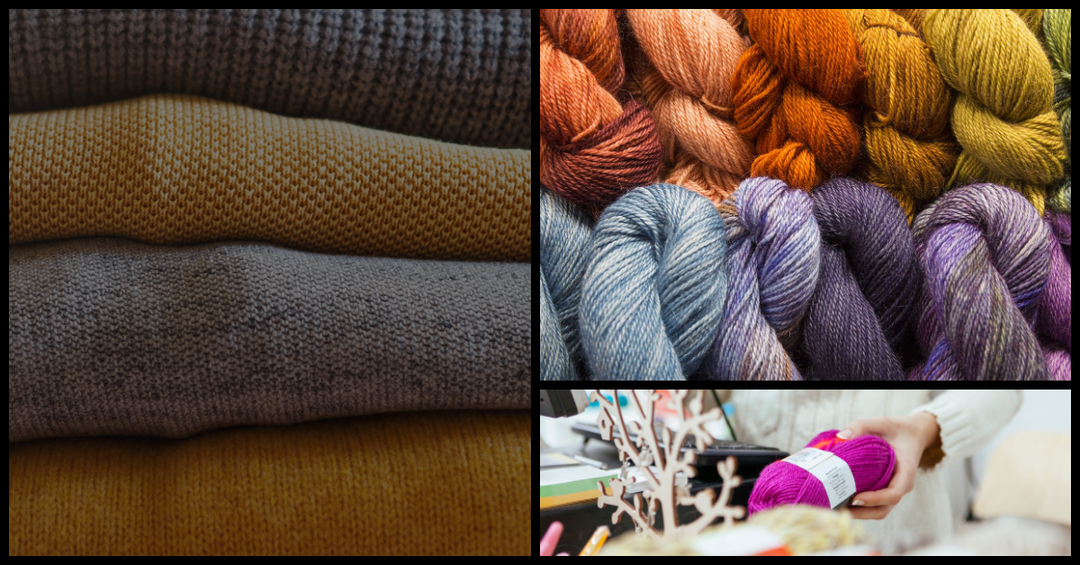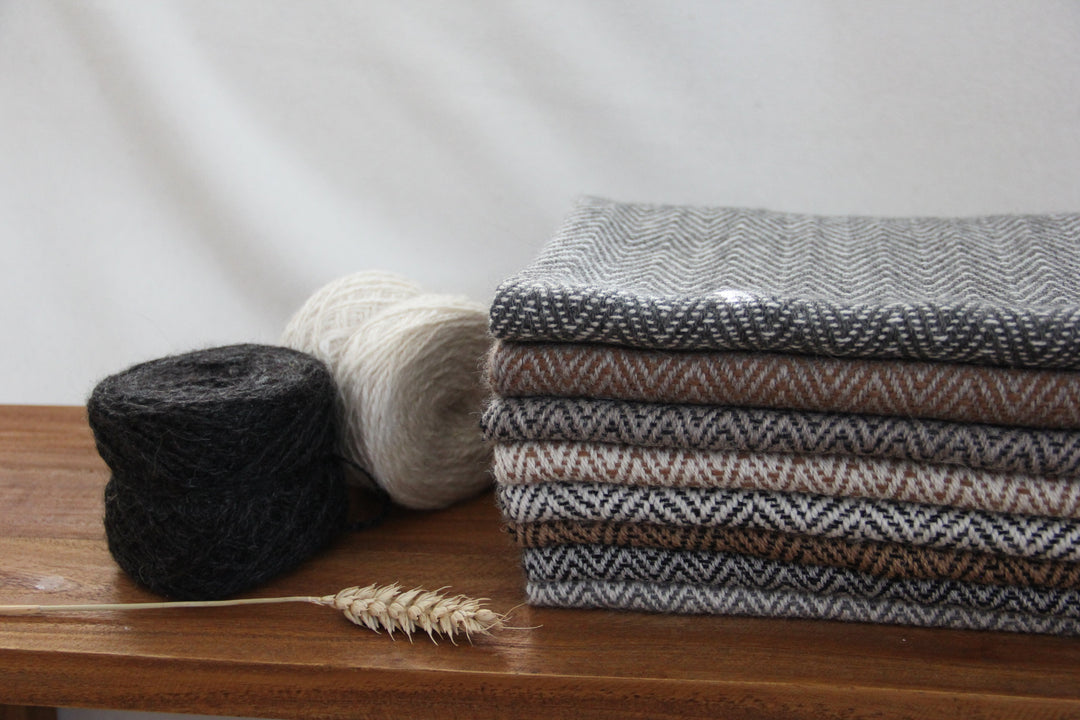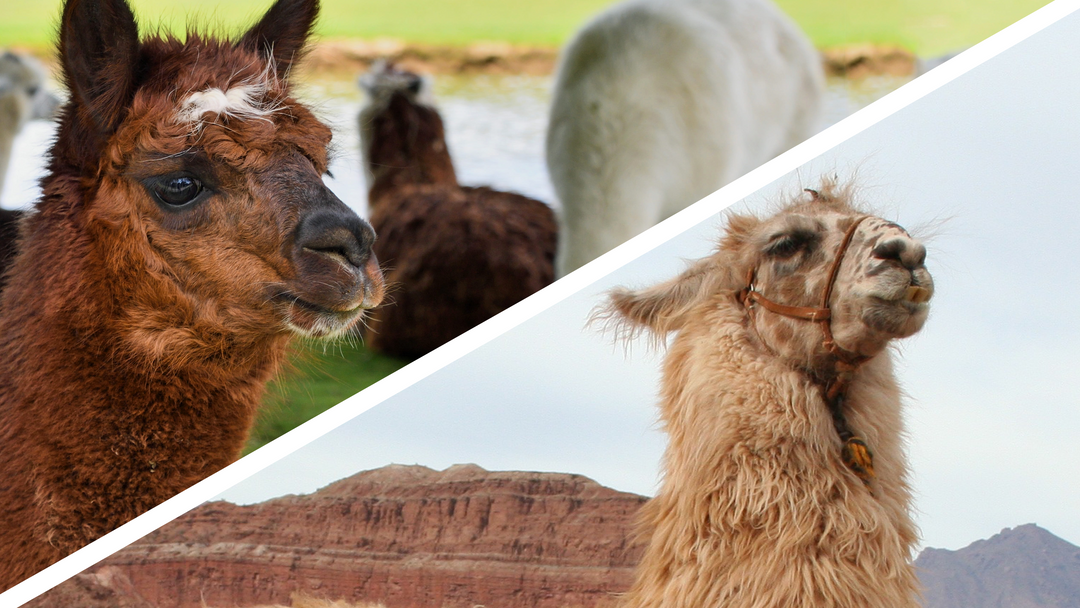Alpaca wool has long been a symbol of exclusivity and comfort. It comes from the alpacas that live high in the Andes and are known for their fine, luxurious fleece. This special wool not only offers an extremely comfortable feel, but also brings with it some unique benefits. However, as with many natural products, there are aspects that raise criticism. In this blog post, we highlight the benefits and possible drawbacks of alpaca wool and how it holds up in the modern world of fashion.
Table of contents
What is alpaca wool?
Alpaca wool is derived from the fleece of alpacas, a species of animal native to the Andes Mountains of South America. The wool is known for its softness, warmth and durability, making it a preferred choice for high-quality clothing and accessories. The natural fibres of alpaca wool offer a variety of properties that set it apart from other types of wool.
Why do people search for disadvantages of alpaca wool?
There is a growing awareness of the origins and environmental impacts of the products we use every day. As a result, many people are looking for transparent information about the potential drawbacks of alpaca wool to make informed decisions about their purchasing intentions. It's not just about comfort, but also about the environmental impact of alpaca wool production and the welfare of the animals that provide the wool.
Possible disadvantages of alpaca wool

Environmental impacts of alpaca wool production
The production of alpaca wool, like that of other animal fibres, can be associated with certain environmental impacts. The size of alpaca herds and land management practices can lead to overgrazing and soil erosion, which can negatively impact local biodiversity. However, many alpaca breeders and traders are working to promote sustainable practices and minimise environmental impacts. For this reason, we recommend wool sourced from the Andes, as the impact there is positive due to the fact that alpacas are native to and necessary for this natural environment.
Animal welfare and species appropriate husbandry
Animal welfare and species appropriate husbandry of alpacas is a key concern for many consumers. Fortunately, alpacas are traditionally kept in the wild in the Andes, which allows them to live close to nature
Care effort of alpaca wool
Many consumers assume that the care of alpaca wool might be a barrier for them to purchase these products. However, the care instructions for alpaca wool are actually easier than for other wool products, as both need to be washed by hand, with the self-cleaning properties of alpaca wool being an added advantage. With the right care instructions, alpaca garments and accessories can retain their quality and longevity for many years.
Most frequent prejudices against alpaca wool
There are some prejudices against alpaca wool, such as that it is very expensive or difficult to care for. These prejudices can stem from ignorance or lack of experience with alpaca products. Through education and information, these prejudices can be reduced and the true benefits of alpaca wool can be better understood.
Alpaca wool in detail

Thermoregulation
Alpaca wool is known for its excellent thermoregulation. The hollow fibres of alpaca wool allow for effective insulation against the cold while wicking away excess heat and moisture. Unlike other types of wool, alpaca wool provides cosy warmth without causing you to overheat. This makes it an ideal choice for a variety of weather conditions and contributes to the robustness of alpaca products.
Wearing comfort, durability and robustness
The comfort of wearing alpaca wool is second to none. It is known for its softness, often compared to that of cashmere, without sacrificing strength. The fibres are resistant to abrasion and retain their shape even after prolonged use. This leads to a longer life for alpaca garments and accessories, making it a sustainable choice for the conscious consumer.
Odour repellent properties and fast drying
One of the remarkable properties of alpaca wool is its natural ability to repel odours. This is due to its moisture wicking properties and the inherent antimicrobial nature of the fibres. In addition, alpaca wool dries quickly, making it an excellent choice for active or outdoor wear.
Antibacterial, glossy and antistatic features
Alpaca wool has natural antibacterial properties that help reduce the formation of bacteria and associated odours. In addition, the natural sheen of the fibres gives alpaca products an aesthetically pleasing look. Unlike many other types of wool, alpaca wool is not prone to static build-up, which further enhances comfort.
Criticism of alpaca keeping

Is keeping alpacas right?
The keeping of alpacas is often compared to that of a similar, long-lived and robust animal welfare. In regions like the Andes, where alpacas are traditionally kept, they enjoy a natural and open environment. Animal welfare is a key aspect of alpaca wool production and offers an alternative, sustainable and ethical option for consumers looking to move away from synthetic materials.
Animal cruelty accusations
As with many animal products, there are allegations of animal cruelty with alpaca wool. However, it is important to note that companies like Andes Alpaca are actively committed to ethical and animal-friendly wool, and adhere to strict standards to ensure that alpacas live in a safe, comfortable and natural environment.
Special features of alpaca wool

Characteristics and uses of alpaca wool
The unique characteristics of alpaca wool, including its softness, strength and thermal properties, make it a prime choice for a wide range of products. From high-quality clothing to home textiles, alpaca products offer unparalleled comfort and style.
Tips for caring for alpaca wool clothing
The care of alpaca clothing is uncomplicated. Regular airing is often sufficient to maintain the freshness of the clothing. If necessary, alpaca products can be washed carefully by hand or on a cold, gentle cycle in the machine. Here are more care tips to maximise the longevity of your alpaca garments.
Quality criteria for alpaca wool
The quality of alpaca wool can be assessed using various criteria, including the fineness of the fibres, the processing and the origin of the wool. It is worth investing in high-quality alpaca products that are not only comfortable to wear, but also meet the ethical and sustainable standards that are important to many consumers today.
Alpaca Wool in Fashion

Alpaca clothing and accessories
The natural benefits of alpaca wool have made it a sought-after material in the fashion world. The alpaca clothing and accessories vary from luxurious jumpers and jackets to scarves and gloves. Their naturally elegant look paired with their functionality makes alpaca clothing a premium choice for those who value quality and aesthetics.
Practical tips when buying alpaca clothes
When buying alpaca clothing, it is advisable to pay attention to a few factors. The origin of the wool, the processing and the dyes used can all have a significant impact on the quality and longevity of the final product. A look at our detailed product descriptions can help you make an informed decision and get the most out of your investment.
Buy alpaca clothing

Online shops for alpaca clothing
In today's digital era, buying alpaca clothing online is an easy and convenient way to access a wide range of products. Our online store offers a carefully curated selection of alpaca clothing and accessories, giving you a glimpse into the versatile and stylish world of alpaca products.
Subscription of newsletters
Subscribing to newsletters from Andes Alpaca keeps you up to date with the latest collections and offers. It's also a great way to learn more about the special properties of alpaca wool and its many benefits.
Conclusion
Conclusion on the advantages and disadvantages of alpaca wool
Alpaca wool is an exceptional material that offers an impressive range of benefits. Despite some drawbacks, particularly related to the environment and animal husbandry, many alpaca wool producers, such as Andes Alpaca, offer ethical and sustainable alternatives. Investing in alpaca wool is not only a choice for quality and comfort, but also a decision that can have a positive impact on our world.
Further information and resources
For more information about alpaca wool and alpaca products, feel free to visit our blog page and explore the world of alpaca. Covering a wide range of topics, from the specific properties of alpaca wool to tips for caring for your alpaca clothing, our site offers a wealth of resources for anyone interested in learning more about this fascinating and luxurious material.
Frequently asked questions about alpaca wool and alpaca clothing
What makes alpaca wool unique?
Alpaca wool is known for its exceptional softness, thermoregulating properties and durability. It is also hypoallergenic as it contains no lanolin, making it suitable for people with sensitive skin. The wool also offers a natural sheen that makes it aesthetically pleasing. Learn more about the properties of alpaca wool.
How is alpaca wool obtained and processed?
The wool is sheared from the alpacas, much like sheep's wool. After shearing, the wool is cleaned, carded and spun into yarn. Processing alpaca wool requires care to preserve its natural quality and softness. At Andes Alpaca, we value ethical and sustainable practices at every step of the process.
How environmentally friendly is alpaca wool?
The environmental impact of alpaca wool can vary. In traditional Andean communities, alpaca wool is produced in a sustainable way. However, the environmental impact of large-scale production can be problematic. Andes Alpaca is proud to promote sustainable and ethical practices. Read more about the environmental benefits of alpaca products.
Are there ethical concerns about alpaca wool production?
Animal welfare concerns can arise, especially when alpacas are farmed on a large scale. It is important to buy from suppliers that promote transparent and ethical practices. At Andes Alpaca, we are committed to species-appropriate husbandry of our alpacas.
How to care for alpaca clothing?
Alpaca clothing requires careful care to maintain its quality and longevity. It is recommended to wash alpaca clothing by hand in cold water with a mild detergent and air dry. For more tips on caring for alpaca clothing, visit our website.
Where can I buy high-quality alpaca clothing?
You can find high quality alpaca clothing and accessories in our online shop. Andes Alpaca offers a wide range of alpaca products that are both stylish and functional, and values ethical and sustainable practices.





